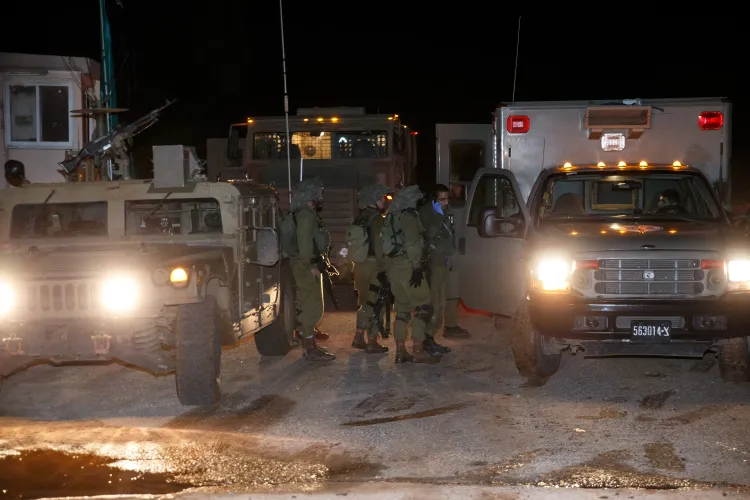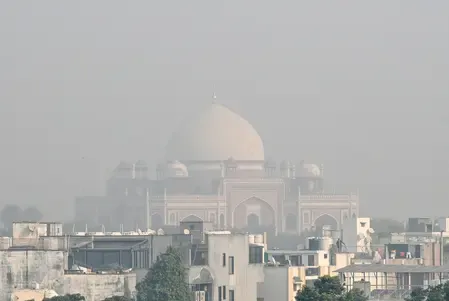Why is the Israeli army fortifying its positions in Lebanon?

Synopsis
Key Takeaways
- Israeli army fortifying five military positions in southern Lebanon.
- Construction includes earthen berms, concrete barriers, and monitoring systems.
- Recent airstrikes targeted Hezbollah positions, resulting in casualties.
- Ceasefire agreement remains fragile amid ongoing military actions.
- Implications for regional stability are significant.
Beirut, Aug 5 (NationPress) The Israeli military has initiated the fortification of five strategic military posts it maintains along the southern border of Lebanon, as reported by a Lebanese security source and local witnesses.
According to a Lebanese security source speaking to Xinhua news agency, "Numerous Israeli military work teams, including bulldozers and excavators, are actively engaged in fortification and reinforcement tasks at these five locations, under the guard of Merkava tanks and extensive drone monitoring."
The reported construction activities encompass raising earthen berms, erecting concrete barriers, constructing shelters for military vehicles, establishing observation systems, and enclosing the areas with barbed wire.
Residents from nearby border villages informed Xinhua that the Israeli construction activities are evidently noticeable.
Recently, the Israeli army set up a new observation point on Al-Hamamis Hill—one of the five positions in the eastern part of the southern Lebanese border area, according to another Lebanese security source.
Military insiders noted that the five positions held by the Israeli army are situated on prominent hills, providing a commanding vantage point for both observation and artillery fire.
A ceasefire agreement between Hezbollah and Israel, mediated by the United States and France, has been in effect since November 27, 2024, following over a year of conflicts sparked by the Gaza Strip war.
Just last week, four members of the Lebanese group Hezbollah lost their lives in a series of Israeli airstrikes targeting Hezbollah positions in eastern and southern Lebanon.
Israeli warplanes conducted 18 airstrikes on Thursday afternoon against Hezbollah positions in Lebanon's eastern Bekaa region and the southern areas, as reported by the National News Agency.
Despite the ceasefire agreement, which mandated a complete Israeli withdrawal from southern Lebanon by the February 18 deadline, Israel continues to occupy five positions in the south, conducting airstrikes in the southern and eastern parts of the country, asserting that these actions are aimed at neutralizing Hezbollah threats.









